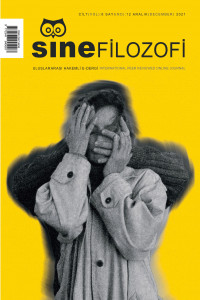Rewriting Shakespeare: Discussing Postmodern Drama Elements in Two Feature Film Adaptations of William Shakespeare’s play “The Tempest”
Rewriting Shakespeare: Discussing Postmodern Drama Elements in Two Feature Film Adaptations of William Shakespeare’s play “The Tempest”
Author(s): Emir Orhan Kılıç, Ezgi ÇakırSubject(s): Theatre, Dance, Performing Arts, Gender Studies, Philosophy of Religion, Psychoanalysis, 17th Century, Film / Cinema / Cinematography, Sociology of Art, British Literature
Published by: Serdar Öztürk
Keywords: Shakespeare; The Tempest; Postmodernism; Adaptation; Rewriting;
Summary/Abstract: This article is going to discuss and compare two film adaptations of William Shakespeare’s classical drama The Tempest (1611). The Tempest (Fırtına, Julie Taymor, 2010) and The Tempest (Fırtına, Derek Jarman, 1979) are considered as two peculiar representations, specifically rewriting gender, race, and power issues the original text dealt with. The Tempest (1611) was chosen for this study because of its uniqueness in Western Drama in terms of mythology, ancient Greek Drama, Latin Drama, Romance, Neoclassicism, and Symbolism, as well as its discussion of modern and universal issues such as gender, race, and power. The time Shakespeare wrote this play coincided with the beginning of English colonialism. In general, it rallies with the classical approaches of tragedy and comedy through combining their elements. The Tempest may be regarded as the initiation of the postcolonial drama. The adaptation of this play for film and theater has been a long process. In our study, film adaptations of Derek Jarman (1979) and Julie Taymor (2010) will be discussed and compared in terms of postmodern film features. The reason for choosing these two films is that both films deal with the same story from two different perspectives of sexual identitiy as queer and feminist. As a result of the findings obtained at the end of the study, it is determined that Shakespeare’s play The Tempest contains themes that center postmodernism and therefore it is a postmodern play. It has been concluded that The Tempest, as a text that can be rewritten in accordance with the socio-cultural position and stance in the historical context, can appeal to the present with its themes and narrative, and that it can be adapted into a postmodern film with its timelessness. While Shakespeare’s The Tempest was rewritten with a queer look in Derek Jarman’s 1979 adaptation, it was seen that the text was rewritten with a feminist discourse and narrative in Julie Taymor’s adaptation.
Journal: SineFilozofi
- Issue Year: 6/2021
- Issue No: 12
- Page Range: 1098-1115
- Page Count: 19
- Language: English

